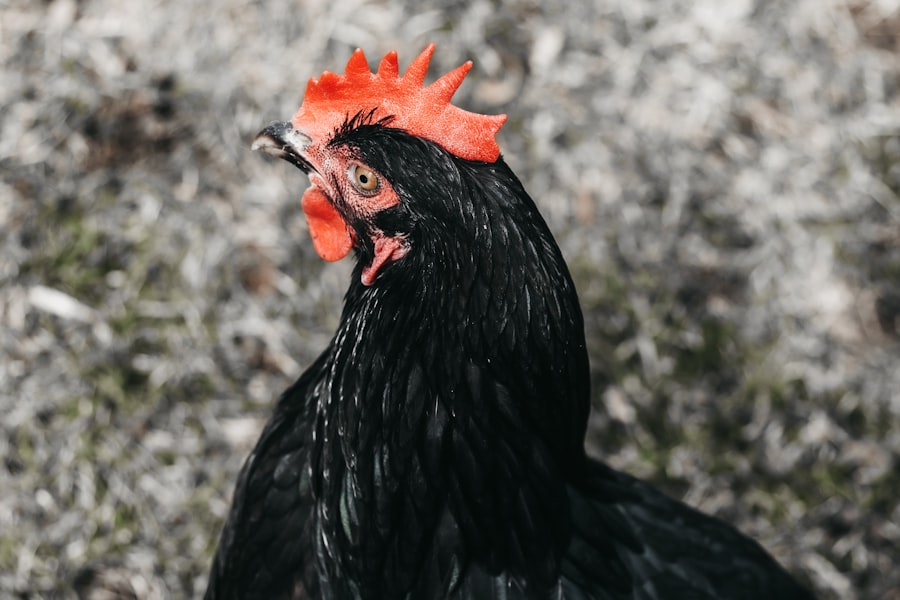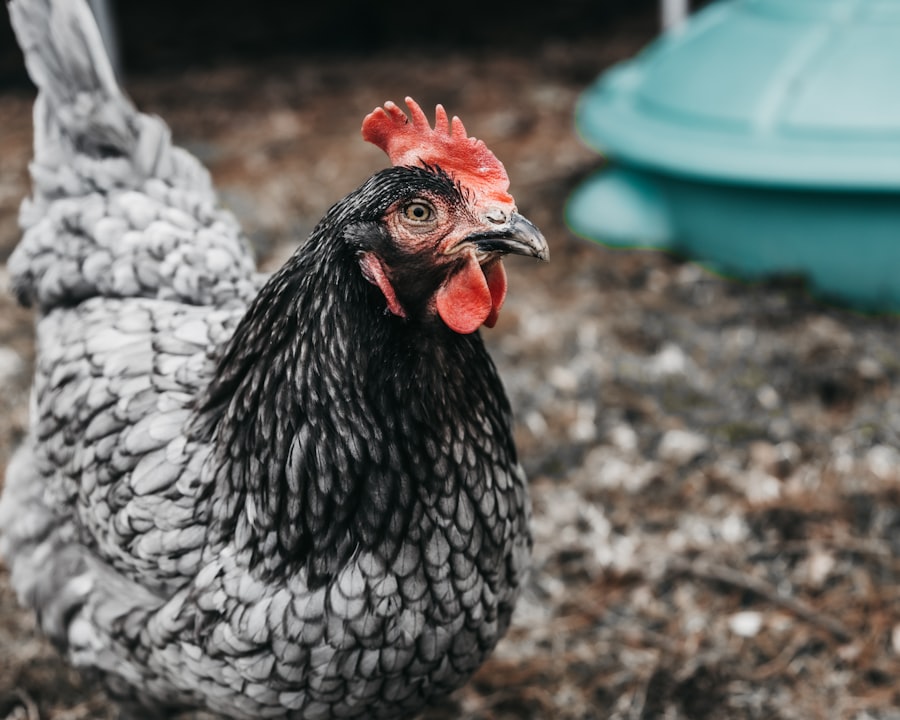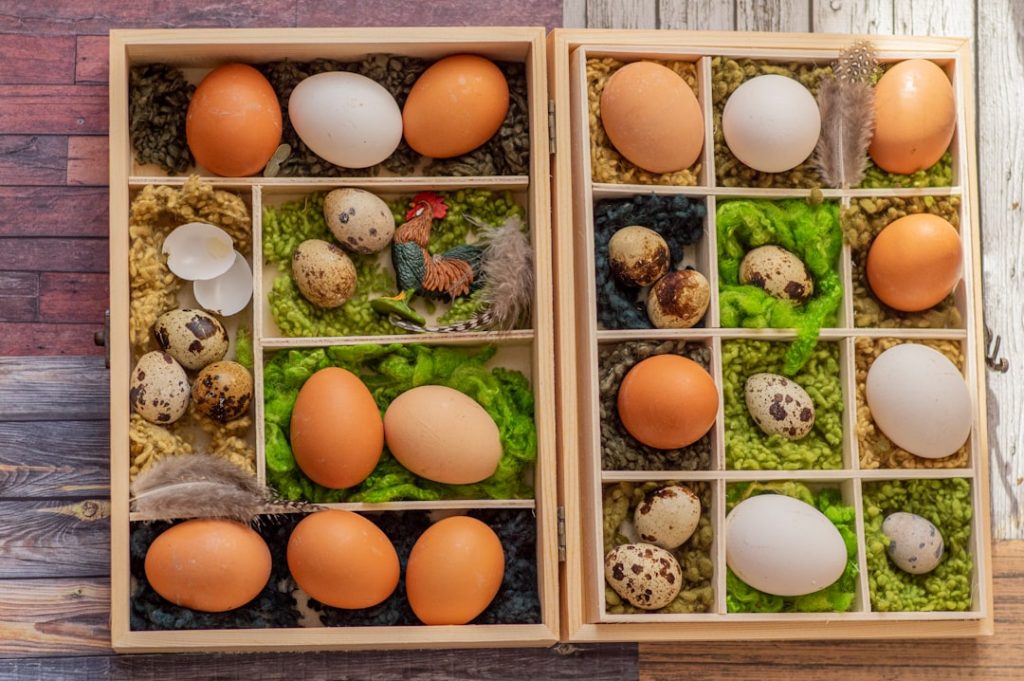Space requirements for raising chickens vary depending on the living environment. In rural areas with large backyards, a small flock can be accommodated more easily. Urban settings with limited outdoor space may require creative solutions such as compact chicken coops or portable chicken tractors.
These structures allow chickens access to fresh grass and insects while maintaining containment. It is essential to check local zoning regulations regarding chicken-keeping before starting a flock. Ensuring sufficient space for chickens to live comfortably and safely is crucial for their well-being.
Larger properties may allow for free-range chickens during daylight hours, providing ample foraging and exercise opportunities. This can contribute to healthier and more content birds. However, free-ranging increases the risk of predator attacks from foxes, raccoons, and birds of prey.
Regardless of property size, adequate shelter and protection are vital for chicken safety and security.
Table of Contents
- 1 Budget for Initial Costs
- 2 Calculate Feed Costs
- 3 Factor in Time Commitment
- 4 Plan for Veterinary Care
- 5 Assess Local Regulations
- 6 Determine Egg Production Needs
- 7 FAQs
- 7.1 What are the initial costs of keeping chickens?
- 7.2 What are the ongoing costs of keeping chickens?
- 7.3 How much space do chickens need?
- 7.4 How much time does it take to care for chickens?
- 7.5 What are the benefits of keeping chickens?
- 7.6 Are there any local regulations or restrictions on keeping chickens?
Key Takeaways
- Consider the space available for raising chickens, ensuring they have enough room to roam and forage
- Budget for initial costs such as purchasing a coop, feeders, waterers, and other necessary equipment
- Calculate feed costs based on the number of chickens and their dietary needs
- Factor in the time commitment required for daily care, feeding, and cleaning of the coop
- Plan for veterinary care and budget for potential medical expenses for the chickens
- Assess local regulations regarding raising chickens, including zoning laws and restrictions
- Determine your egg production needs and plan for the number of chickens required to meet those needs
Budget for Initial Costs
Initial Investment
You’ll need to invest in a chicken coop or housing structure, as well as feeders, waterers, and nesting boxes. Additionally, you’ll need to purchase the chickens themselves, whether they are day-old chicks or point-of-lay pullets.
Varying Costs
The cost of these initial supplies can vary depending on the size of your flock and the quality of the materials you choose. It’s important to budget for these initial costs and consider the long-term investment of raising chickens.
Ongoing Expenses
In addition to the physical supplies needed, you’ll also need to budget for ongoing expenses such as feed, bedding, and healthcare. These costs can add up over time, so it’s important to factor them into your budget when considering raising chickens.
Calculate Feed Costs

One of the ongoing expenses of raising chickens is the cost of feed. Chickens require a balanced diet that includes protein, carbohydrates, vitamins, and minerals to stay healthy and produce eggs. The cost of feed can vary depending on the type of feed you choose and the size of your flock.
It’s important to calculate how much feed your chickens will need on a monthly basis and budget for this expense accordingly. In addition to the cost of feed, you may also want to consider supplementing your chickens’ diet with kitchen scraps or foraged greens. This can help reduce your overall feed costs while providing your chickens with additional nutrients and variety in their diet.
However, it’s important to ensure that any supplemental foods are safe and appropriate for chickens to consume. When calculating feed costs, it’s also important to consider the age and production level of your chickens. Laying hens will require a different diet than growing chicks or non-laying hens, so it’s important to adjust your feed costs accordingly.
By carefully calculating your feed costs and budgeting for this ongoing expense, you can ensure that your chickens are well-fed and healthy without breaking the bank.
Factor in Time Commitment
Raising chickens requires a significant time commitment, especially when it comes to daily care and maintenance. Chickens need fresh water and feed daily, as well as regular cleaning of their coop or housing structure. Additionally, they may require regular health checks and monitoring for signs of illness or injury.
It’s important to factor in the time commitment required to raise chickens and ensure that you have the time available to dedicate to their care. In addition to daily care, raising chickens also requires time for tasks such as collecting eggs, maintaining the chicken coop, and managing any potential issues such as predator protection or health concerns. It’s important to consider how much time you have available on a daily basis to dedicate to these tasks and whether or not you have the ability to maintain a consistent care routine for your flock.
While raising chickens can be a rewarding experience, it’s important to be realistic about the time commitment required. By factoring in the time needed for daily care and maintenance, you can ensure that you are able to provide your chickens with the care and attention they need to thrive.
Plan for Veterinary Care
Just like any other pet or livestock animal, chickens require veterinary care from time to time. It’s important to plan for potential veterinary expenses when considering raising chickens. This may include routine vaccinations, deworming treatments, or treatment for common health issues such as respiratory infections or parasites.
Additionally, it’s important to have a plan in place for emergency veterinary care in case of illness or injury. When planning for veterinary care, it’s important to establish a relationship with a veterinarian who is knowledgeable about poultry health and wellness. This may involve researching local veterinarians who specialize in poultry care or reaching out to other chicken owners for recommendations.
By having a veterinarian lined up before any potential health issues arise, you can ensure that your chickens receive prompt and appropriate care when needed. In addition to planning for veterinary care, it’s also important to take proactive measures to prevent illness and injury in your flock. This may include practicing good biosecurity measures, providing a clean and healthy living environment, and monitoring your chickens regularly for signs of illness or distress.
By planning for veterinary care and taking proactive measures to keep your flock healthy, you can help ensure that your chickens lead long and happy lives.
Assess Local Regulations

Researching Local Ordinances and Regulations
In addition to zoning laws and homeowner association rules, it’s also important to consider any local ordinances or regulations that may apply specifically to poultry keeping. This may include restrictions on the number of chickens allowed per property, setback requirements for chicken coops or housing structures, or specific guidelines for waste management and odor control. By understanding these regulations upfront, you can ensure that you are in compliance with local laws and avoid any potential legal issues down the road.
Obtaining Necessary Permits and Licenses
In some cases, it may be necessary to obtain permits or licenses in order to legally keep chickens on your property. It’s important to research these requirements and take the necessary steps to obtain any permits or licenses before getting started with raising chickens.
Avoiding Legal Issues and Fines
By assessing local regulations and ensuring that you are in compliance with all applicable laws, you can avoid potential fines or legal consequences related to backyard poultry keeping. Remember, understanding local regulations is crucial before embarking on the journey of raising chickens.
Determine Egg Production Needs
When considering raising chickens for egg production, it’s important to determine your specific needs and goals for egg production. This may include considering how many eggs you and your family consume on a weekly basis, as well as whether or not you plan to sell any surplus eggs. By understanding your egg production needs upfront, you can determine how many chickens you will need in order to meet those needs.
In addition to determining your egg production needs, it’s also important to consider the breed of chicken that will best meet those needs. Some chicken breeds are known for their high egg production rates, while others may be better suited for meat production or ornamental purposes. By researching different chicken breeds and their egg production capabilities, you can select the breed that is best suited for your specific needs and goals.
It’s also important to consider factors such as egg color and size when determining your egg production needs. Some chicken breeds lay eggs of varying colors such as brown, white, or even blue or green, while others may lay larger or smaller eggs depending on their breed. By considering these factors upfront, you can ensure that you select the right breed of chicken to meet your specific egg production needs.
In conclusion, raising chickens can be a rewarding experience that provides fresh eggs and a connection with nature. However, it’s important to carefully consider all aspects of chicken keeping before getting started. By assessing factors such as space availability, budgeting for initial costs and ongoing expenses such as feed costs, factoring in the time commitment required for daily care and maintenance, planning for veterinary care, assessing local regulations regarding backyard poultry keeping, and determining egg production needs upfront, you can set yourself up for success when raising chickens.
With careful planning and consideration of these factors, you can create a healthy and happy environment for your flock while enjoying the benefits of fresh eggs from your own backyard.
If you’re considering keeping chickens, you may also be interested in learning about how to insulate a chicken coop. Insulating your coop can help keep your chickens warm in the winter and cool in the summer, ensuring their comfort and well-being. Check out this article for tips on how to properly insulate your chicken coop.
FAQs
What are the initial costs of keeping chickens?
The initial costs of keeping chickens include purchasing a coop, feeders, waterers, bedding, and of course, the chickens themselves. These costs can vary depending on the size and quality of the items purchased.
What are the ongoing costs of keeping chickens?
The ongoing costs of keeping chickens include feed, bedding, and any necessary medical care. Additionally, there may be costs associated with replacing or repairing equipment and maintaining the coop and run.
How much space do chickens need?
Chickens need at least 2-3 square feet of space inside the coop and 8-10 square feet of space in an outdoor run per chicken. It’s important to provide enough space to allow for natural behaviors and to prevent overcrowding.
How much time does it take to care for chickens?
Caring for chickens typically requires daily tasks such as feeding, watering, collecting eggs, and cleaning the coop. Additionally, there may be weekly or monthly tasks such as coop maintenance and health checks.
What are the benefits of keeping chickens?
Keeping chickens can provide a sustainable source of fresh eggs, natural pest control in the garden, and the opportunity to connect with nature and learn about animal husbandry. Additionally, many people find the presence of chickens to be calming and enjoyable.
Are there any local regulations or restrictions on keeping chickens?
Local regulations on keeping chickens can vary widely. Some areas may have restrictions on the number of chickens allowed, coop placement, or noise ordinances. It’s important to check with local authorities before starting a backyard flock.
Meet Walter, the feathered-friend fanatic of Florida! Nestled in the sunshine state, Walter struts through life with his feathered companions, clucking his way to happiness. With a coop that’s fancier than a five-star hotel, he’s the Don Juan of the chicken world. When he’s not teaching his hens to do the cha-cha, you’ll find him in a heated debate with his prized rooster, Sir Clucks-a-Lot. Walter’s poultry passion is no yolk; he’s the sunny-side-up guy you never knew you needed in your flock of friends!







